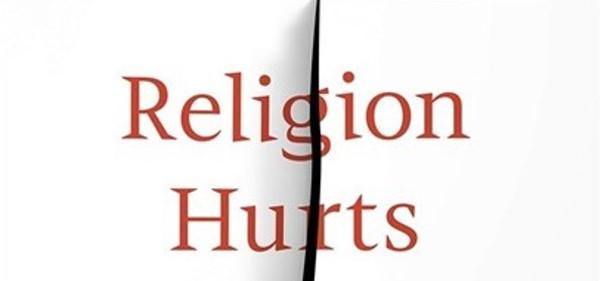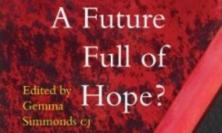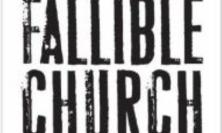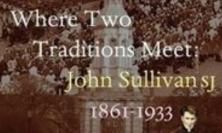John Bowker’s contribution to the question of religion’s dark side is impressive, concise and even-handed. However, even the title of the book shows up some of the pitfalls in trying to be balanced. Is it ‘religion’ that causes hurt, or ‘religions’? The question is not new, but Bowker brings to it a wealth of background and expertise, with a publication record that includes accessible introductions to God, Islam, world religions, as well as the study of ‘religion’ more generally.
He pitches straight in, with what is for many people the obvious starting point, namely the atrocities committed in the name of militant Islam; Bowker is writing in the aftermath of terror incidents in the UK in 2017. The justification of such attacks by citation of passages in the Qur’an and of Islamist commentary runs directly counter to the claim that Islam is, at its core, an inherently peaceful faith. Grappling with this dilemma, and with the paradoxical nature of religion more generally, has required Bowker to write this short book (rather than the originally-intended pamphlet). Within 164 pages, the parameters are confidently and lucidly set out.
Firstly, defining terms: above all, ‘religion’ and ‘religions’. What is the link between them? Bowker is aware of the academic case against ‘religion’ as a theoretical category, a concept largely constructed by colonialist western thinkers as a way of organising – and controlling – non-western societies, with their divergent accounts of the transcendent. But if a ‘constructivist’ approach has its pitfalls, so does a ‘functionalist’ one, i.e. an attempt to define religion (or a religion) in terms of the specific important functions it performs. The nearest we can get to clarity, he suggests, is by using Wittgenstein’s notion of ‘family resemblance’. There is no single list of characteristics that are shared by all religions or examples of religion, and we have to be content with noting the similarities and overlaps between different descriptions – and, above all, not minimising real differences.
A second, related point is Bowker’s insistence that these overlapping descriptions must include the self-description of religious believers themselves. The attempt to bracket out what religions actually say and understand about themselves is a dead-end; Bowker shows how the study of religion in recent years has developed away from reductionist explanations. Especially fruitful is the idea that we speak of ‘constraints’, rather than causal explanations: a belief system, including religious belief, is not so much ‘caused’ as the outcome of the various constraints, external and internalised, which impact over time upon the individual. The way in which these are internalised as the foundation of a person’s life, ‘lies at the heart of any understanding of religious beliefs and behaviours’ (p.30). Constraint is the condition of freedom: paradoxically, the acceptance of non-negotiable constraints opens an individual up to liberation. Bowker suggests the analogy of learning to play a musical instrument, as in Hadyn’s comment that in his sonata innovations he ‘sinned against the rules of harmony’ – but only after learning the rules in the first place; not a bad analogy, perhaps, for gospel freedom.
I warm also to Bowker’s plea (made in 1985 but, he argues, largely unheeded) that the level of religious literacy among politicians must be drastically increased. Their consistent lack of appreciation of the power of religious belief for both evil and good has led us from one ‘disastrous ineptitude to another’.
This is an impressive book, for its concise and lucid coverage of the main themes of study of religion, updated and refreshed by Bowker’s own take and by his pointing us to current debates. The book travels along a subtle but important trajectory – from asking about religion and its apparent complicity with violence (chapter 1), through a discussion of ‘difference’ (chapter 2) to the deeper question of ‘what does it mean to be human?’ (chapter 3). Here is a significant reframing of the problem. Violence is, surely, a fundamental anthropological phenomenon, of which ‘religion’ is one symptom or expression. So much so that some commentators urge us to reverse the question: not ‘does religion cause violence’, but ‘does violence cause religion?’
The final chapter, ‘On the edge: the boundaries of religion’ re-emphasises empowering constraint (a condition of both freedom and unfreedom) as a key to understanding the paradoxical nature of religion. A religion is a highly organised system for the protection and transmission of the accumulated knowledge and wisdom essential for the flourishing of communities. And such protective communities require boundaries, whether literal or metaphorical … hence the reality of ‘religions’ in the plural. Bowker cites, among others, Michael Barnes SJ (Theology and the Dialogue of Religions) in asking after the nature of these boundaries between religions. Are they to be uncrossable red lines, or green lines, like a membrane, allowing for interaction and exchange?
Bowker addresses specific themes in three ‘additional texts’ (presumably ‘appendices’): an exposition of theoretical and legal issues in Islam and its relation to the non-Islamic world; an updating of the discussion about Christianity and the world religions (the now classical paradigm of inclusivism, excluvism and pluralism, centred around John Hick); finally, the necessity of ‘hermeneutics’ or interpretation, since all the faith traditions rely upon teachers or texts credited as speaking ‘with authority’.
The strategy is a rather depressing one: to begin with sensationalist headlines about suicide bombers, then to ask some direct questions about what’s going on, only to move the discussion subtly onto deeper questions about anthropological roots and a more nuanced appraisal of how religion helps – or hinders – the task of being human. It seems as if religion has to be presented as ‘bad news’ before we can speak of its potential to be ‘good news’. And as often as not, the presenting problem is not religion in general, or the other world faiths, but the interface between Christianity and Islam. Religious studies, not economics, has become the ‘dismal science’.
Perhaps in our current climate this is the only way of getting people to look more closely at religion. So be it. In any case, John Bowker does it well, firmly reminding us at every turn that questions are more complex than they seem. His commentary on Islam is sensitive and balanced, addressing down-to-earth issues arising from Islam’s encounter with modern scientific thought (Damian Howard SJ’s Being Human in Islam features in this section). Implications for politics, law and education in Britain are considered, as well as the appendix, mentioned above, on ‘Treaties in Islam’. Getting a true picture of Islam and its beliefs is perhaps one of the most urgent priorities in the improvement of religious literacy, so this appendix is to be welcomed.
Of course there is a sense of frustration when thinkers whom I find important or useful are not even cited. The absence of Charles Taylor looks odd; there is, as noted, discussion of the parameters between religious belief systems, but not much discussion of the ‘religion versus secularism’ debate. Here is another version of the ‘red lines versus green lines’ dilemma. Other absent friends would include William T. Cavanaugh, Mark Juergensmeyer and René Girard. This does not mean that their influence is absent, however, and there is a wealth of other resources and authorities to follow up … among whom, as I was pleased to note, are several of my Jesuit colleagues.
Bowker’s fine study takes us well beyond the sterility of much contemporary debate and commentary. He finishes on an uplifting note, declaring the ‘specific religious contribution’ (in this case, to human rights discourse) is ‘to define more adequately what it means to be human – the acquisition of our own responsibility and the acceptance that we are accountable; and the endeavour to ensure that possibility for all others.’ (p.123)
Michael Kirwan SJ is author of Discovering Girard (London: Darton, Longman and Todd; 2004) and Political Theology: a New Introduction (London: Darton Longman & Todd; 2008)






